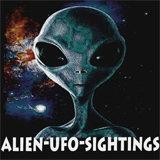Patricia Grant was born in Zanesville, Ohio, in 1922. She was educated in Ohio, California, and Massa chusetts, and obtained a B.Sc. degree in architecture from the University of Cincinnati.
She came to the U.K. in 1958 as a civilian architect with the U.S. Navy. Her interest in UFOs began with the Kenneth Arnold sighting in 1947 , and has continued unabated to the present day. Now retired, she is no longer engaged in active investigations, but continues her research into UFOs and related subjects.
Reports of Unidentified Flying Object: So You Want to Be a Ufologist? PATRICIA GRANT
The Portsmouth Journal, Cosham, of December 11 , 1988, gives us the latest ”gen” on UFO statistics. An “expert” has told the Journal that 99.9 percent of UFO sightings can be easily explained. One must point out that these odds are slightly better than those the United States Air Force gave us nearly forty years ago when they announced that 100 percent of sightings could be explained if there were sufficient information to hand.
These latest statistics advise us that one must investigate 100 cases of UFO sightings per year in order that one tenth of one UFO sighting will have any significance whatso ever. One would assume that the Portsmouth Journal’s “expert” has a doctorate in statistics. He does not: he is a photographer’s technician. However, appearances can be deceiving. In our community there was once a dairy man who entertained his customers by reciting excerpts from Lucretius, Catullus, and Horace, with a bit of Virgil thrown in. Rumor had it that he crooned the fragments of Euripides’ Phrixus while milking his cows. It transpired that he was a classics scholar with a respectable Ph.D. and had opted for the “good life. ” It follows that the Portsmouth Journal’s favorite son very well may be a mathematics whiz kid who cares naught for academe.
The point being made here is that your profession, craft or occupation will not disqualify you from becoming a ufologist or even an “expert” ufologist. You may be a scientist, artist, teacher, policeman, lorry driver, machinist or a dust man. Journalists, postmen, housewives or stockbrokers are all welcome. In seeking new outlets for your energies and creative instincts you need have no hesitation in entering this field of study. As Dr. Jacques Vallee was once overheard to remark: “In ufology, we are all beginners. “
If you decide to become an adept in this arcane occupation, you will want to know where to begin. Burning with enthusiasm for the subject, you probably have read a great deal about it. Read more. There are two major rules in ufology-although many ignore them-and the first rule is this: Collect and catalog as much data on the subject as you can. The second rule is more difficult for some: While engaged in the pursuit of scholarship, try to develop a lot of good old-fashioned common sense, because you will certainly need it. As for recommended reading material, FSR (Flying Saucer Review) , 1 the oldest remaining and internationally acclaimed UFO forum is a must. Sub scribe to it, and as a companion, the purchase of The Encyclopedia of UFOs2 is a valuable investment as a source of information. Apart from these indispensable guides, read everything else on the subject that you can lay hands on.
When you think you are prepared to take the next step (sighting investigations), you may want to join a UFO group. There is a plethora of these about, some large, some small, but each of them fall more or less within one of the following four categories:
- Contactee Cults (CCs)
- Skeptical True Believers (STBs)
- Pseudo-Scientific Activists (PSAs)
- Serious Scientific Approach groups (SSAs)
Only you can judge which type best suits your temper ament. If you feel uncertain, let us look at them all, one at a time.
